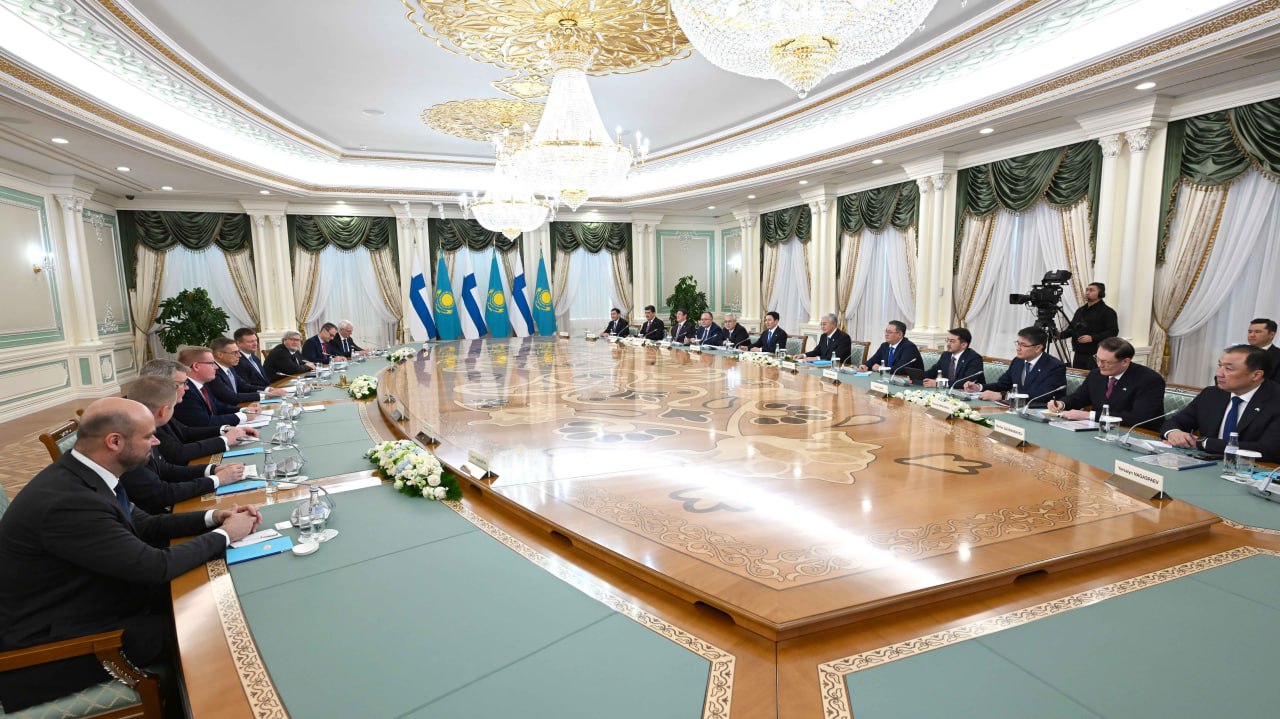Copyright newstatesman

Our opponents want us to believe that the populist right is a worldwide rising tide. In dozens of countries, they deploy the same script with the same objective. They want to demotivate and demoralise us. But the evidence points us in the opposite direction: progressives are winning more often. There have been 23 elections in the past year across the West. The left and centre have won more than half of these; the populist right is nowhere near close. Politics is wide open. Over the past few weeks, from the margins of the UN General Assembly to the Global Progress Action Summit in London and at the Party of European Socialists gathering in Amsterdam, I’ve spoken to the prime ministers of Canada, Australia, Norway, Spain and Denmark. All of them have beaten the populist right. All five parties are on their second term or more, with three – in Canada, Australia and Norway – having won those contests this year. The world is telling us there is nothing inevitable about the march of Nigel Farage. Today, democratic politics is defined by volatility. Multicoloured lines moving glacially up and down are a thing of the past. Popularity is hard-won, and is often hard to come by for governments facing midterms and by-elections. The polls in the UK fit this wider trend. In Canada, the Liberal Party was once 20 points behind. In Norway, Labour lagged by 16 points. And in Australia, our sister party trailed by ten. All three roared back from deep midterm lows to win again decisively. They did so with a very clear, three-part formula: lasering in on the cost of living, uniting the left and centre, and putting security first. It’s a politics I like to call Progressive Realism. These lessons are shaping Labour’s fightback against Farage. I asked the leaders of Canada, Australia and Norway – respectively, Mark Carney, Anthony Albanese and Jonas Gahr Støre – what they saw as the most important ingredient in their victory. They each said it came down to the cost of living. Their publics went to the polls knowing their governments had taken action to help them and their families. This action would never have been possible without the strong public finances these progressive realists had rebuilt. This was crucial in uniting the left and the centre in their re-elections. In Canada, 42 per cent of the New Democratic Party’s former voters went for Carney’s Liberals to stop Conservatives, who were seen as insufficiently patriotic. In Australia, as many as 86 per cent of Greens chose Albanese’s Labor in next-preference votes to save climate commitments. In Norway, 18.6 per cent of the Centre Party’s former vote moved to Labour to stop the same grievance politics. But they also faced facts. Over the years, progressives across the world have made the mistake of not asking ourselves why our opponents are becoming popular. Each of these winners recognised real concerns about migration. Canadian Liberals capped student visas. Norwegian Labour ramped up returns of failed asylum seekers. In Australia, Labor has streamlined deportations and removals of those with no right to be there. Mette Frederiksen, Denmark’s progressive leader, pioneered this approach by admitting the country had an asylum problem. This is the lesson from her two-term government that our Labour government understands. That’s why we have introduced Border Force Command, increased removals, and are bringing in digital ID to clamp down on illegal working. A party for working people must be a somewhere party – for a specific people and a specific place – and not an anywhere party. Carney made his country’s election about what it means to be Canadian. He could not have done this without unashamed patriotism. Security and patriotism are at the heart of all three of these wins. They were led by decisive statesmen: Carney, uncompromising on Canadian sovereignty; Albanese, dedicated to the trilateral Aukus agreement and Pacific security; and Støre, respected for his major material commitments to Ukraine and early action on Palestinian recognition. Faced with opponents who ran down their countries and dabbled in disinformation, voters backed the leaders they could trust if it ever came to war. Our Labour government has all the same ingredients for the fightback. We’re led by Keir Starmer, a statesman and champion of Ukraine, who has zoomed in on the cost of living. We’ve increased minimum wage and public-sector pay. We’ve founded Great British Energy to cut bills, and frozen fuel duty. We’ve stood up for renters and expanded sick pay to the least well off. We’re supporting parents with an extra £7,500 a year per child to cover nursery bills. And we’re rolling out breakfast clubs and expanding free school meals. Change has begun. Thanks to Rachel Reeves, we’ve seen five interest rate cuts, helping every mortgage payer. Wages have risen more in the past ten months than in ten years of Tory rule. And we will continue to focus on the long-term renewal our economy needs. The truth is, Britain has been worn down by long-term decline and division. Working people have been losing hope, feeling that nobody listens. I grew up in the shadow of Tottenham’s Broadwater Farm Estate, so I know what despair can feel like. Labour understands that people are impatient for change. We hear them loud and clear. And that’s why we will keep fighting for opportunity, respect and security for everyone. This is what we are building: a changed Britain. The NHS needs change. That’s what our Ten-Year Plan for the NHS is about. Our education system needs to change. That’s what our bold target of two thirds of young people in higher-level learning – academic, technical or apprenticeships – is about. Our transport system needs to change. That’s what our plans for Great British Railways and public ownership are about. Our armed forces need to change. That’s what our commitment to the biggest sustained increase in defence spending since the Cold War is about. We have turned the British state into a reconstruction site. Those who want to stop Farage are by far the majority. Change will beat the charlatans. But we have work to do. The Spanish PM, Pedro Sánchez, tells me progressives need to fight back with our values. Keir Starmer and I have turned the fight on Farage and drawn a clear dividing line between our politics of renewal and theirs of decline. When a policy is racist, we will call it that: racist. We also urgently need to get better at learning from each other. Recently I visited Amsterdam to meet Sánchez and other progressive leaders, because he is right to warn that the populist right – even as it champions division – is organising internationally more effectively than we are. From Martin Sellner in Austria to Tommy Robinson at home, theirs is an international network. From Farage to Steve Bannon, they are supporting each other. From Alice Weidel to Marine Le Pen, they are learning from each other to extraordinary effect. We see the right’s global network influencing our own politics. But it’s not just Farage’s meetings with Bannon or pandering to Elon Musk, or his associations with Alternative for Germany or the Le Pen family. Farage claims he’s stunned that his former party leader in Wales was caught taking Russian bribes. But it’s no surprise to us: we know the Kremlin has consistently backed those seeking to break European unity. This fight must energise us, like it energises them. The truth is I’ve never felt more European standing up against those that despise everything Europe stands for. Keir Hardie would recognise this moment. Labour was born at a similar time of dizzying change. As the last century began, working people were crying out for help amid the deluge of modernity. The entire progressive project – labour, social democratic and socialist – began to answer their call. The world we face is uncannily similar. Worldwide, states are struggling with unrelenting change. And everywhere working people are calling out for solidarity and community. This can go in either a regressive or a progressive direction. We in the progressive movement have always been futurists. Attlee’s 1945 manifesto was called “Let Us Face the Future” for a reason. Wilson seized the “white heat of technology”. Blair moved forward with globalisation. And now Starmer has put us in the race for the future. We’re leading the most significant programme of investment in clean energy in British history. We’re backing the biggest expansion in nuclear power in half a century. And we’re at the cutting edge of the AI revolution. Jensen Huang, the CEO of Nvidia, has said the UK can be an “AI superpower”. Only Labour will put this revolution at the service of working people. This is why we have the most ambitious plan in the world to wire AI through public services. The British state is a laboratory fizzing with hundreds of pilots testing how AI can unlock huge gains for the common good. This is where our government has a unique role to play worldwide in showing what a progressive-built future looks like. Let me give you one example from my own department, Justice. We know probation officers are at the front line. Their job couldn’t be more important: to convince an offender not to reoffend. But they spend too much time writing reports. In October, I expanded the AI pilot Justice Transcribe, part of an AI revolution that is saving 240,000 days a year across the justice system – the equivalent of freeing up more than 1,000 staff. This AI transcription lets probation officers be more human, by taking away the bureaucratic drudgery. This is Progressive Futurism: a politics that will always reach for, rather than cower from, the most advanced tech available to radically improve life in Britain. Change has begun. Take the NHS. Within two years, we’ll have NHS online offering millions of online appointments at a time that works for you. As the world transforms, this is a progressive transformation in how the state works for you. Two extraordinary revolutions – the energy transition and the arrival of AI – are not to be feared. They have the potential to make everyday life cheaper, easier and gentler. They have the ability to solve so many of our problems, from sluggish growth to low productivity. This is the bright future we are building in Britain. And the brighter we can make it shine, the more we will overpower the populist right’s lurid, self-hating, incorrect fantasy of a broken Britain. Change is how we win again. David Lammy is the UK’s Deputy Prime Minister and Secretary of State for Justice



